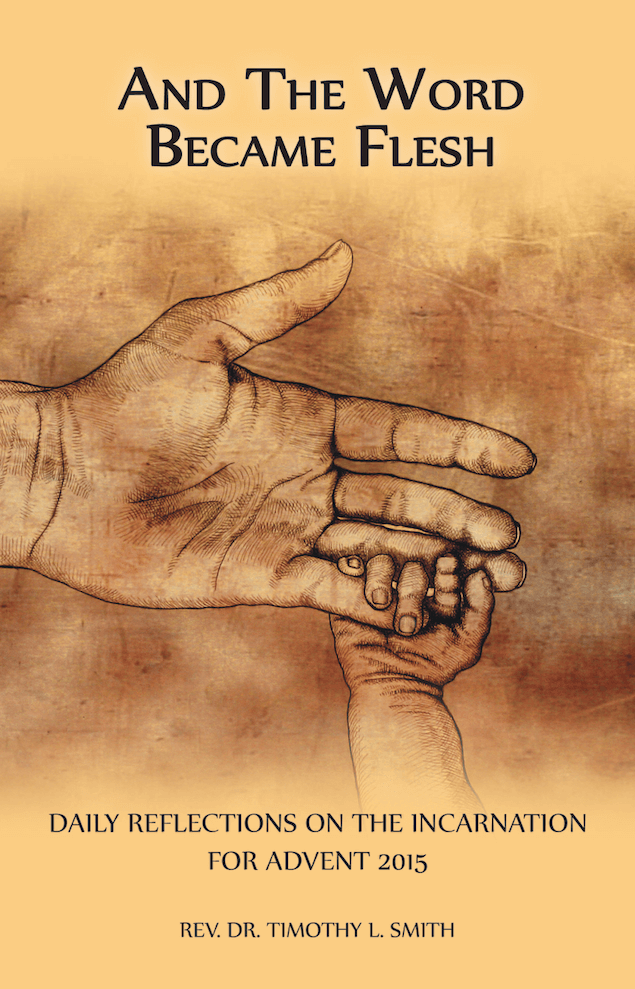The Eleventh Day of Advent
For you know the grace of our Lord Jesus Christ, that though he was rich, yet for your sakes he became poor, so that by his poverty you might become rich.
2 Corinthians 8:9
While pondering today’s Scripture I thought of Mark Twain’s historical novel, The Prince and the Pauper, a fascinating tale adapted into various Disney productions and cartoons. It’s a story about two boys, a prince and a pauper, who exchange roles and life situations. The prince is Edward Tudor, son of Henry VIII, the long awaited male heir to the English throne. The pauper is Tom Canty, the unloved son of a beggar and thief, who lives in one of London’s poorest and roughest slums, Offal Court. The pauper is forced by his father to beg on the streets and is severely beaten when he returns home empty-handed.
One day the pauper wanders aimlessly out of London, passing the mansions of great lords and ladies till he arrives at Westminster. There he happens to see the prince playing on the palace grounds. The prince and pauper spot each other on the other side of the fence and wonder what it would be like to trade places. So they exchange clothing and their identities as well. The prince takes the life of the pauper and the pauper the life of the prince.
Today’s Scripture tells a prince and pauper story that really did happen. We read about the Prince of Heaven trading places with bankrupt humanity and giving us His place in Heaven. At Christmas we celebrate the Son of God taking that which belongs to us so that we might have that which belongs to Him. Through His poverty we are made rich. “In his great compassion he did not reject union with our nature, fallen though it was as the result of sin, but gathered it up in himself in order to purify it and quicken it in his own sinless life-giving life.” (Thomas Torrance, The Trinitarian Faith) By His grace we become what He is by nature.
Methodist missionary E. Stanley Jones called this the “Divine Exchange” as God “shared what was in man that we might share what is in Christ…He came down that we might go up. Salvation is not then a mere transferring us from earth to heaven but a transference from what we are to what He is, it is to be in Him.” (Quoted by Michael Hobbs, Going a Little Farther)
This real prince and pauper story means that God knows what it is to be human. Where He experienced brokenness, He brings healing. Where He sunk in despair, He brings hope. Where He met contempt, He showers love.
People found it hard to understand Jesus as they were looking for the trappings of royalty rather than a baby lying in a straw manger. “The stable stinks like all stables do. The stench of urine, dung, and sheep reeks pungently in the air. The ground is hard, the hay scarce…A more lowly place of birth could not exist.” (Max Lucado, It Began in a Manger)
Jesus knows our pain and weakness from the inside, and remembers us at God’s right hand. He is the Prince who became a real Pauper so that we through His poverty might be endowed with heaven’s treasures. Because Christ took the fullness of our true humanity to Himself, we can, through Him, enter into full union with Father and Holy Spirit. The church father Irenaeus summed up the mystery of the faith so well: “In his unbounded love He was made what we are, that He might make us to be what He is.” (Irenaeus, Against the Heresies)
PONDERINGS
- E. Stanley Jones said that salvation is “a transference from what we are to what He is.” How do you sense Christ making that transference in your life?
- Are there parts of your life and life story where it seems difficult to imagine Jesus trading places with you? What parts might those be?
- Take a few moments to talk with Jesus about His “trading places” with you.
EMBODIED PRAYER: KNEELING
“When the wise men found the baby Jesus, they knelt down and paid him homage” (Matthew 2:11). Many times throughout Scripture and the life of the church we find people kneeling to express their thoughts and feelings. English theologian David Peterson describes the impact of kneeling as we pray:
…an expression of inferior status and subservience to another person. Sometimes this obeisance was an indication of gratitude and sometimes it was associated with supplication or entreaty. Whatever the situation it was a recognition of total dependence of one party on another for the provision of some need…Sometimes it was associated with an outburst of praise, but sometimes the gesture itself appears to have been sufficient to express the trust and gratitude of those concerned. (David Peterson, Engaging with God: A Biblical Theology of Worship)
Sometimes people kneel to pray:
- Eyes open
- Looking up
- Hands lifted upward
Sometimes people kneel to pray:
- Looking downward with eyes averted or closed
- Hands folded
Today and every day of the Second Week of Advent pray the Lord’s Prayer while kneeling.




